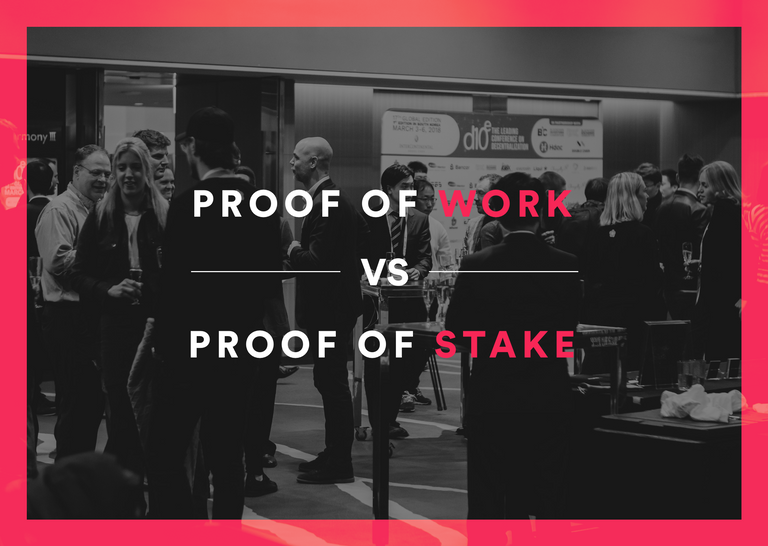
Proof of Work vs Proof of Stake
In one my last article I quickly covered one of the problems with Proof of Work (PoW) that Proof of Stake (PoS) can handle better but what exactly does PoW and PoS mean and what are the differences between them?
Simply put, they are both algorithms for reaching consensus on the blockchain. This can get quite complicated but basically anyone can create a block and this is why we need consensus since we only want one chain. Hence, we want a way to decide which blocks we can trust. This is the job of both PoW and PoS. A lot of cryptocurrencies are switching to PoS as Ethereum recently did and so far the community seems to favor this algorithm.
PoW is the original consensus system of Bitcoin and validates blocks by requiring work from the service requester, usually meaning processing time by a computer (mining). The miners are then rewarded for this computer work by receiving new Bitcoin which is how the total supply of Bitcoin increases. Bitcoins total supply is 21 million and this amount is expected to be reached by 2140 and once this amount has been mined, miners will be compensated solely by transaction fees (Which they are today already compensated more for than the new BTC).
PoW is however very inefficient in certain areas, one of which I covered in my previous article, energy usage. This energy usage is not only bad for the environment but also works as a disincentive for miners since costs of running mining platforms is high. This has led to to a situation where most of the mining operations happen in China (because of their low energy cost) and that kind of ruins the decentralized nature on which Bitcoin was built on.
Because of these energy costs and their negative externalities on the environment, PoW struggles with scalability and some of these scalability problems can be addressed more easily with PoS.
PoS is an algorithm by which a blockchain network achieves distributed consensus by validating, choosing the creator of the next block based on stake (wealth or age), rather than through mining. All validators have to own a stake, Ether in the case of Ethereum.
However, validating blocks rather than mining them has some negative outcomes. The largest concern with PoW is that some people see it as a way of leading mining to become centralized and further on making the rich richer. This is because the energy required to run two set-ups which have very different amounts of stake is the same whilst the larger stake owner has a greater chance of receiving the mining reward. Hence after a certain point, the cost of being part of the mining operation would be too high relative to the payout for small stakeholders which would lead to them eventually opting out, taking their wallets offline.
Both are systems being used by many different cryptocurrencies and as the scene evolves we will see new consensus algorithms being formed. There are already a lot of cryptocurrencies experimenting with different systems such as ICON (ICN) with their DPoS (Delegated Proof of Stake) or POA Network with uses PoA (Proof of Authority). We will have to wait and see how these systems work once further scaling is done.
Legal disclaimer: This is only my personal opinion, make of it what you wish. What does this mean? It means it's not advice nor recommendation to either buy or sell anything! It's only meant for informative and entertainment purposes.
Best regards,
Nicholas Stael von Holstein
Starflow
Good job!
Thanks!